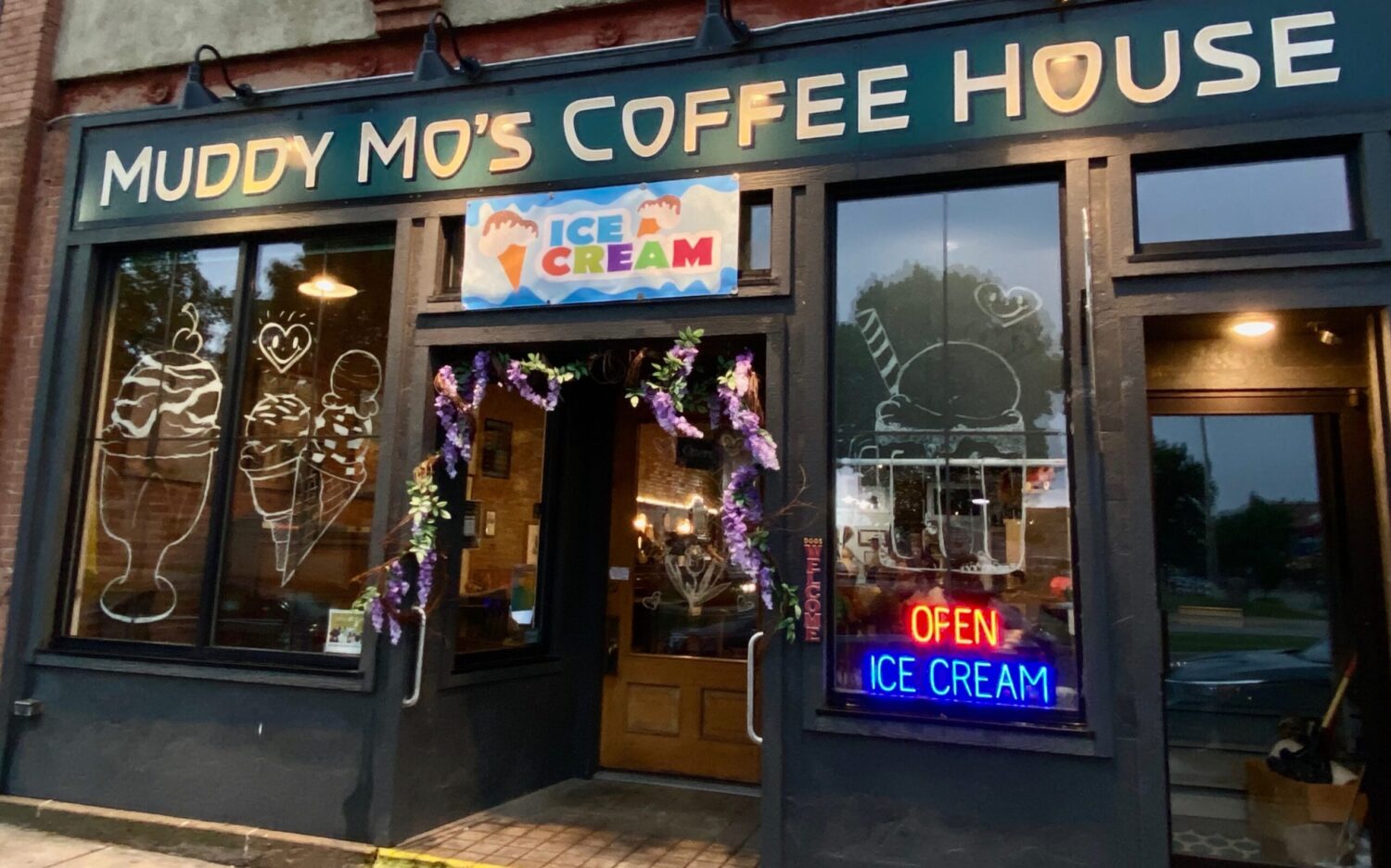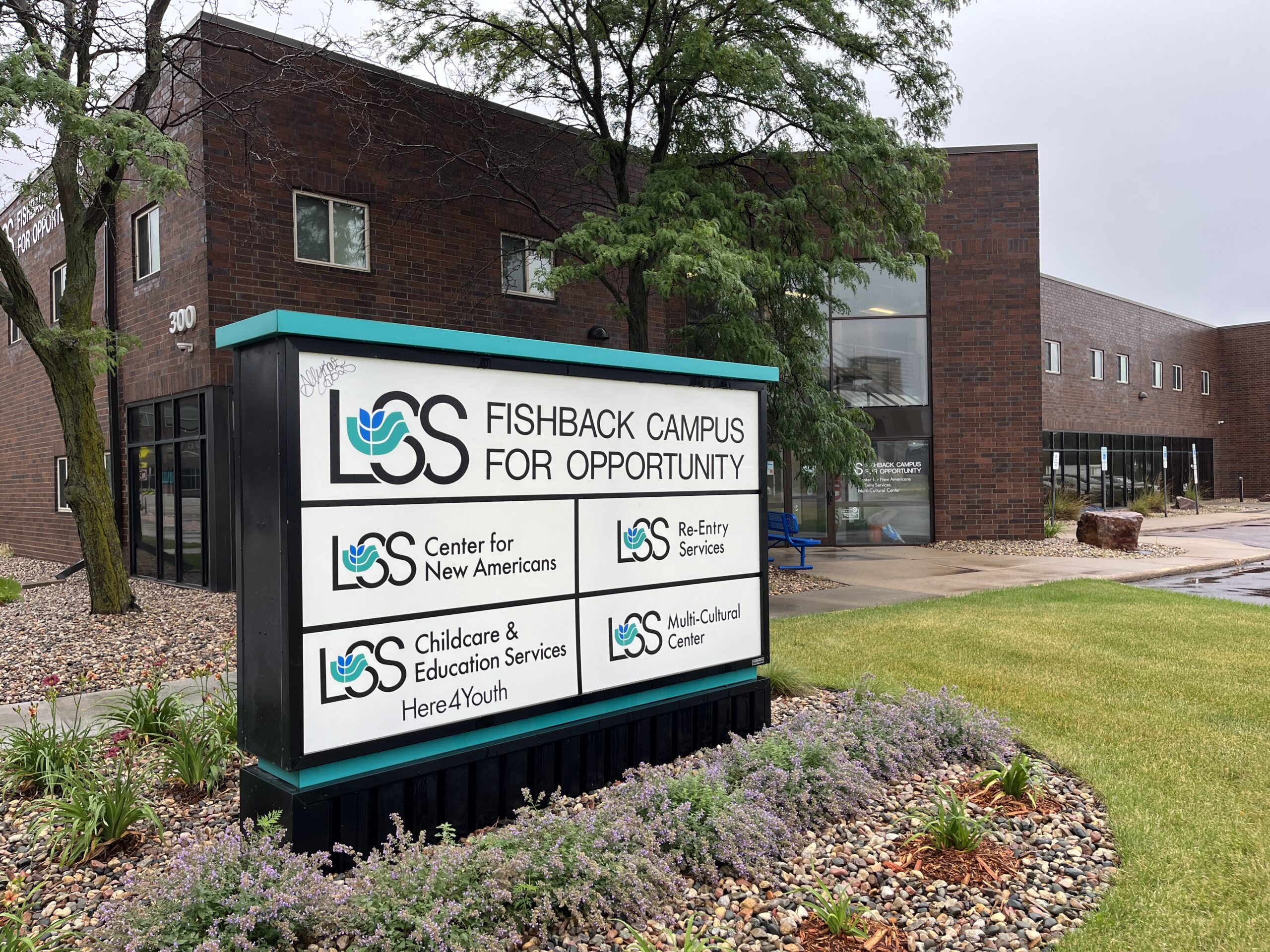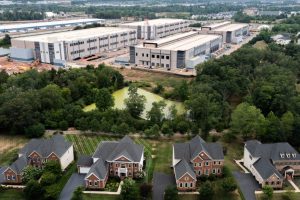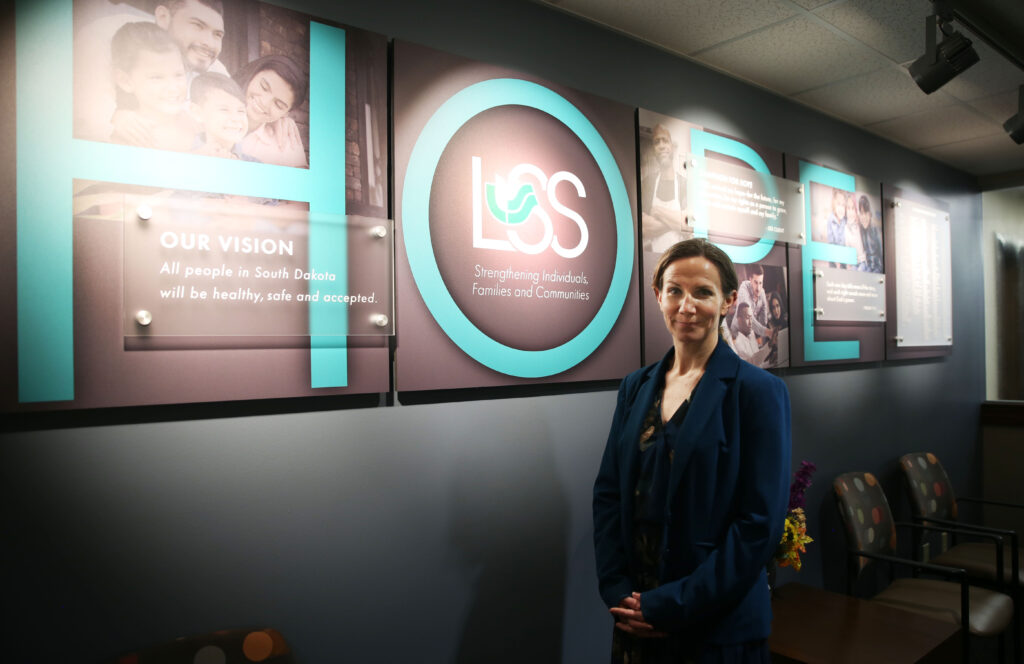
Lutheran Social Services State Refugee Coordinator Dana Boraas poses for a photo in June 2025 in the LSS Center for New Americans lobby. (Makenzie Huber/South Dakota Searchlight)
A South Dakota community rallied to keep a local nonprofit office serving immigrants and refugees in the area open earlier this year. But now those neighbors face uncertainty as federal policy changes force them out of the workforce and potentially out of the country. And the nonprofit is struggling with an uncertain future as federal funding and policy changes impair the organization.
Sioux Falls-based Lutheran Social Services of South Dakota announced it would close its Yankton office in March due to a loss of federal funding. More than $50,000 fundraised by the Yankton community since then will help keep that LSS office open for at least another year.
‘This is our home’: Ukrainians settled in SD fear Trump-Noem policies will force them to leave
President Donald Trump cut funding used to help new refugees adjust to life in the United States through organizations like LSS, which resettles refugees on behalf of the federal government.
The nonprofit eliminated 13 positions due to the loss and absorbed hundreds of thousands of dollars in expenses to provide resettlement services to those who arrived in America in the months before Trump assumed office, said CEO Rebecca Kiesow-Knudsen. The nonprofit also provides adoption, foster care, juvenile justice and behavioral health services to South Dakotans beyond its resettlement services.
She anticipates more funding cuts in the coming months. The changes are part of a “systematic dismantling of resettlement in the U.S.,” Kiesow-Knudsen said.
“What we’re feeling is we’re not going to see any substantive refugee resettlement in South Dakota in the near future.”
Yankton population increases supported by immigration growth
Lutheran Social Services opened the Yankton office in 2022 to meet the needs of the area’s growing immigrant population.
The number of people identifying as Hispanic or Latino doubled in Yankton County between 2010 and 2020. The county’s overall population increased by about 872 people during the same period, according to Census data. Its Hispanic and Latino population alone increased by 620.
Driving much of that increase in Hispanic and Latino populations was a wave of Cuban immigrants moving to the area, Kiesow-Knudsen said. Many Cubans are living and working in the community legally through humanitarian parole, which is a temporary immigration status for individuals to live and work under a sponsor in the United States because they face a humanitarian crisis in their home country.
Lutheran Social Services worked with 143 Cuban humanitarian parole cases, or 169 people, in federal fiscal year 2024. There may be additional humanitarian parolees in South Dakota who haven’t contacted LSS for help, according to the nonprofit.
The Yankton LSS office closure announcement coincided with the March closing of Cimpl’s Meats, a major employer in Yankton, which laid off more than 250 employees in March, many of whom were Cuban humanitarian parolees.
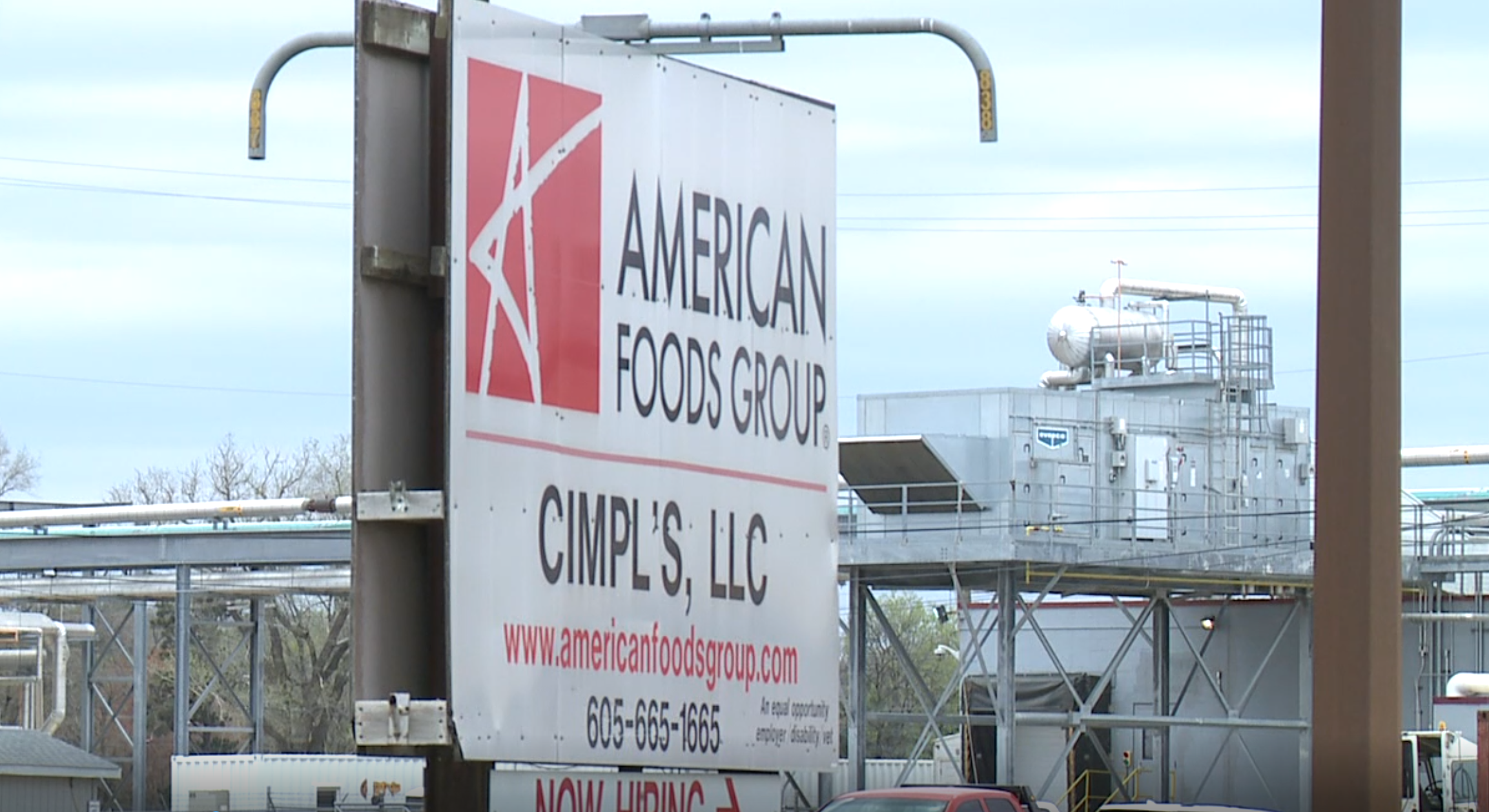
Those immigrants relied on Lutheran Social Services to find reemployment, said Rita Nelson, who formerly worked on workforce development at Yankton Thrive and sits on the Connecting Cultures Yankton board, which is affiliated with the economic development organization. The Yankton LSS office offers legal services, community orientation, health care navigation and job-seeking services. The state Department of Labor and Regulation also hosted a job fair to help workers apply for employment.
Immigrants in Yankton provide a sense of vibrancy and economic stability needed in the community, Nelson said. People moving in and starting families — whether foreign-born or not — work, live and spend money to support their families and area businesses.
“We all want individuals to be able to navigate the immigration process legally,” Nelson said, “and they can’t do that without a resource and someone who can help them.”
That feeling motivated Nelson and others to start a fundraising effort in April to keep the local LSS office open. Muddy Mo’s Coffee House owners posted about the fundraiser on social media and set a tip jar on the counter labeled “Help Your Neighbors.” The shop is owned by Katie Hunhoff, owner of South Dakota Magazine and daughter of the magazine’s founder and former state lawmaker Bernie Hunhoff.
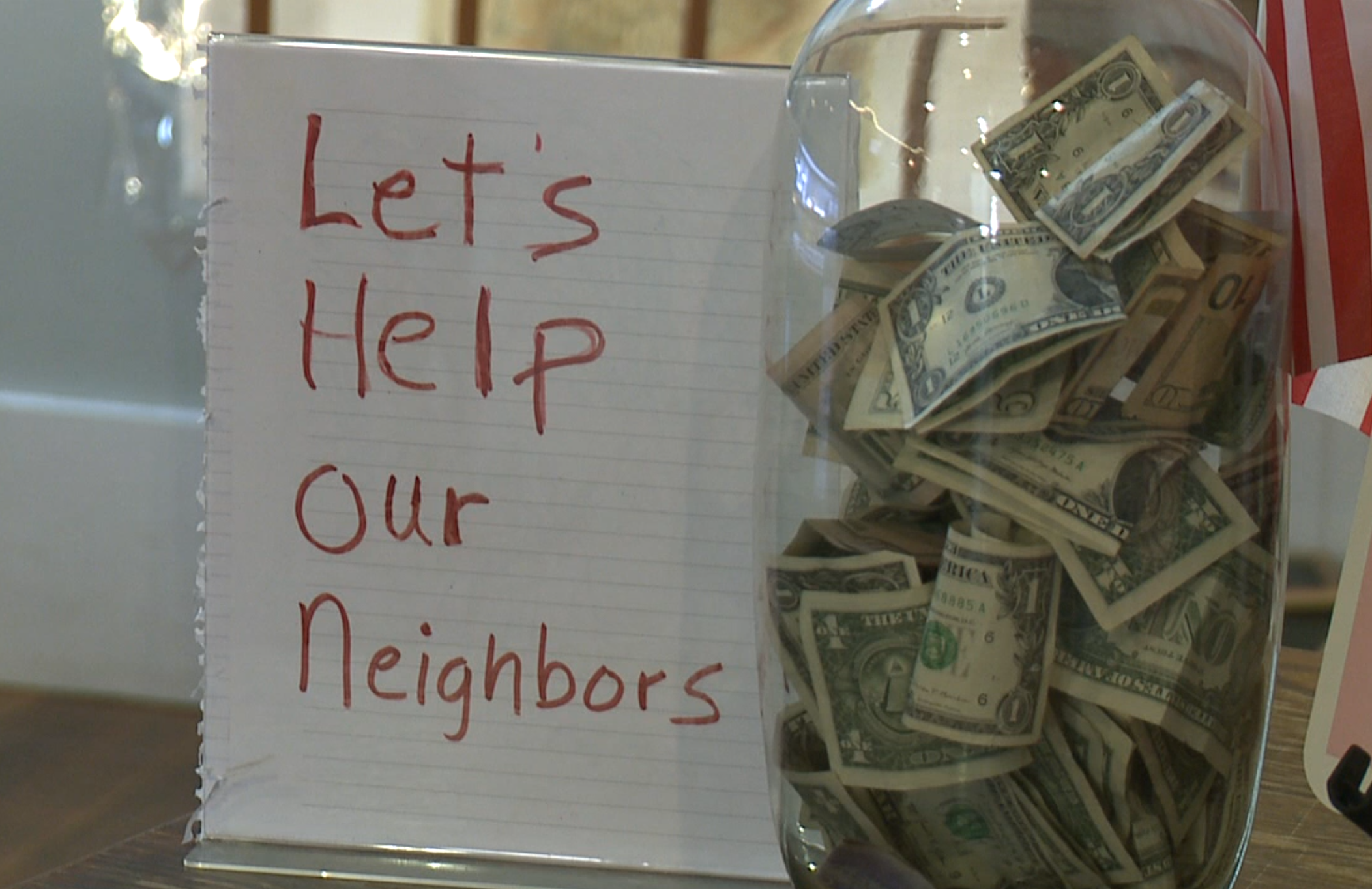
The support reminded Bernie of times when farmers get sick or injured and neighbors rush to harvest the corn or bale the hay. It was an opportunity for people whose “hearts are with the Cimpl’s workers” to help.
Clients who use the LSS office were notified when it intended to close. They were also notified when their neighbors stepped in to keep the office open “because the community cares about them,” Hunhoff said.
“I think what happened in Yankton is powerful evidence this is where our community wants to go: We want to be good neighbors to everybody, and America is better as a welcoming place,” Hunhoff said.
Uncertainty for immigrants remains after community saves LSS office
Weeks after the community raised thousands of dollars to help their neighbors find reemployment through LSS, many of those same workers have been laid off again.
This time it was because the Supreme Court at the end of May upheld the Trump administration’s revocation of the Biden-era Cuba, Haiti, Nicaragua and Venezuela parole program and elimination of the legal status of over 500,000 immigrants.
Cuban parolees are able to apply for U.S. citizenship through the Cuban Adjustment Act. While that pathway to citizenship is still open, said LSS State Refugee Coordinator Dana Boraas, the work permits of immigrants in the program were terminated. Several were laid off because “their work permits aren’t valid in the system anymore even if they expire next year,” she said.
The nonprofit is working with about 500 people affected by the terminated work permits statewide, to direct them toward legal services.
“A lot of people, unless they talk to an attorney, think they have no options to stay, they can’t file, and they have to leave,” Boraas said. “They get this scary notice saying, ‘You have to go home.’ We keep saying, ‘Talk to an attorney, talk to an attorney.’”
Yankton will be hurt if dozens of local immigrant families are forced out of the country, Hunhoff said.
“Of course, life will go on in Yankton and the other communities, but it’s a loss — not just economically but more so in terms of decency and fairness — and it’s contrary to everything we always believed about small town America,” Hunhoff said. “Maybe we aren’t the beacon of hope and morality we’ve always thought we were? That’s being tested.”
LSS faces more federal funding cuts
The Yankton community’s work to help its neighbors and the nonprofit is a “bright spot” for Lutheran Social Services, Kiesow-Knudsen said. But the organization’s funding troubles persist.
The nonprofit incurred about a half-million dollars in costs after the changes to immigration policy at the federal level, Kiesow-Knudsen said. Much of it was reimbursed by the federal government, after U.S. Sen. Mike Rounds, R-S.D., argued that those funds were committed before Trump’s immigration overhaul. About $100,000 in expenses remain, Kiesow-Knudsen said.
The nonprofit continued to provide resettlement services for refugees who arrived in the United States within a few months of President Trump’s inauguration.
“It didn’t seem ethical to us to cut those people off,” Kiesow-Knudsen said. “It’s a story as old as our country. We welcome people.”
The nonprofit will have to cover the costs with funds from its foundation if the remainder is not reimbursed by the end of June.
The nonprofit is also working to understand what its role will be in the new federal fiscal year. As of October, Lutheran Social Services will no longer receive federal support for refugee resettlement directly from the federal government, under Trump’s new immigration policy.
South Dakota is one of 14 “replacement designee” states for refugee resettlement, meaning the funding goes directly to a nonprofit agency — such as LSS — rather than through the state. LSS has been the exclusive provider of refugee resettlement services in South Dakota for 25 years.
Gov. Larry Rhoden’s administration will have to decide if South Dakota state government will take on its refugee program internally, like North Dakota or Minnesota; or contract the work out to another agency, in which case LSS could potentially be selected again; or decide not to accept any refugees. Wyoming is the only state that does not accept refugees.
LSS also lost a grant to help refugees find employment faster and a nearly $300,000 Department of Homeland Security grant used to provide education and legal assistance for immigrants working to become citizens. The legal services formerly cost $50 and classes were free. Now, legal services and classes cost $800 for anyone seeking citizenship.
“That’s our breakeven cost to be able to pay the staff,” Boraas said.
The nonprofit is also facing additional cuts proposed in the “One Big Beautiful Bill,” under consideration in the U.S. Senate, that would eliminate funding for adult education and to help refugees who are in the United States for less than five years.
“I feel comfortable that we can provide services through September 2026, and then we’ll see based on what happens in Congress,” Kiesow-Knudsen said.
GET THE MORNING HEADLINES.



